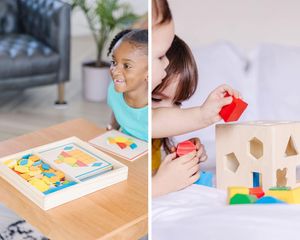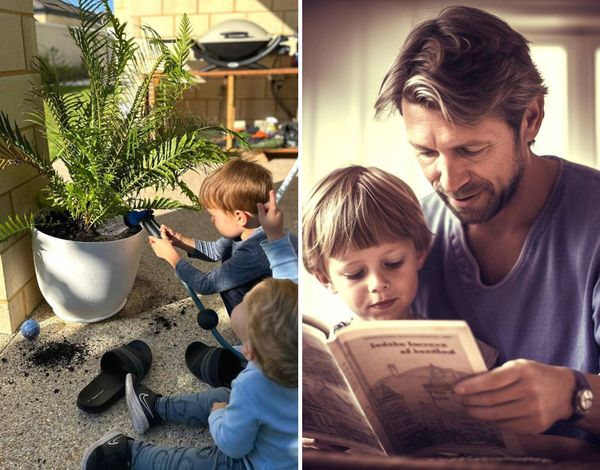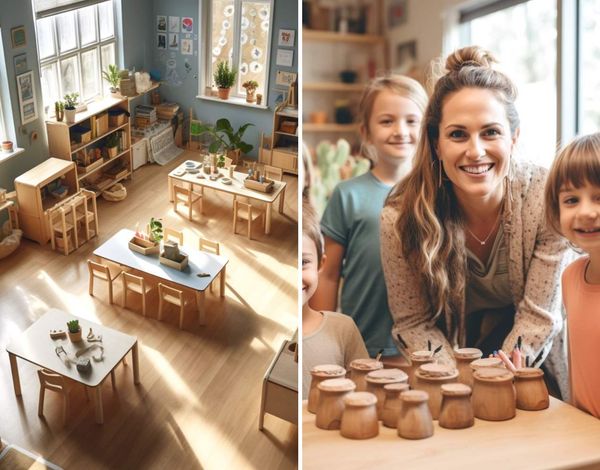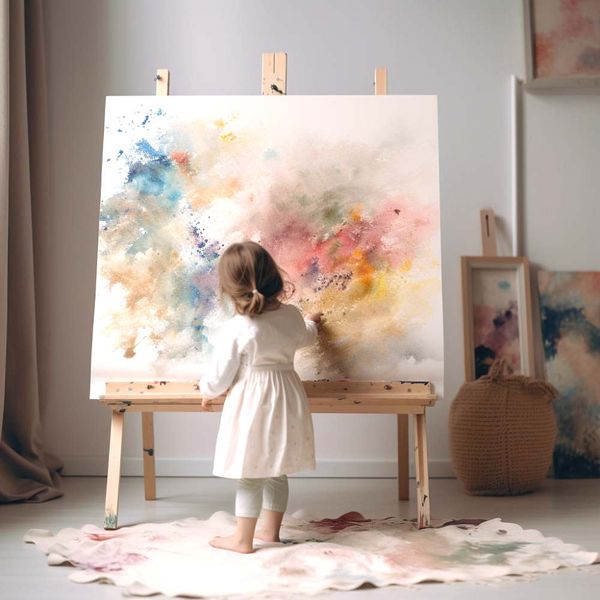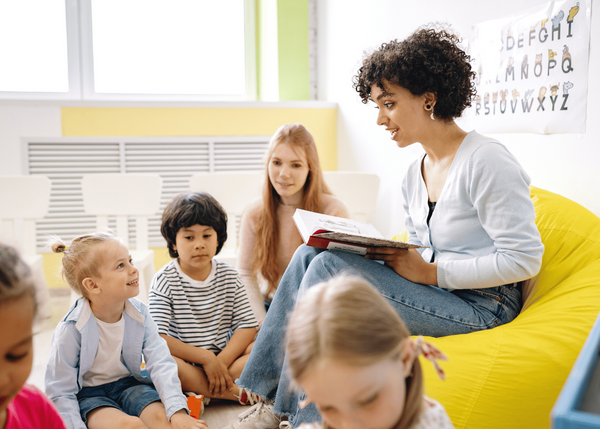Welcome back, parenting navigators!
Ever catch yourself staring at your little Einstein, mesmerized by their innate curiosity, wondering how you can best nourish that sparkling intellect? You're in the right place, my friend (but you already knew this!)
For those of you who've been following our compass—no pun intended—you already know I'm all about embracing the spirit of Montessori to build a robust foundation at home. But let's be real: life is like a toddler's temper, wildly unpredictable.
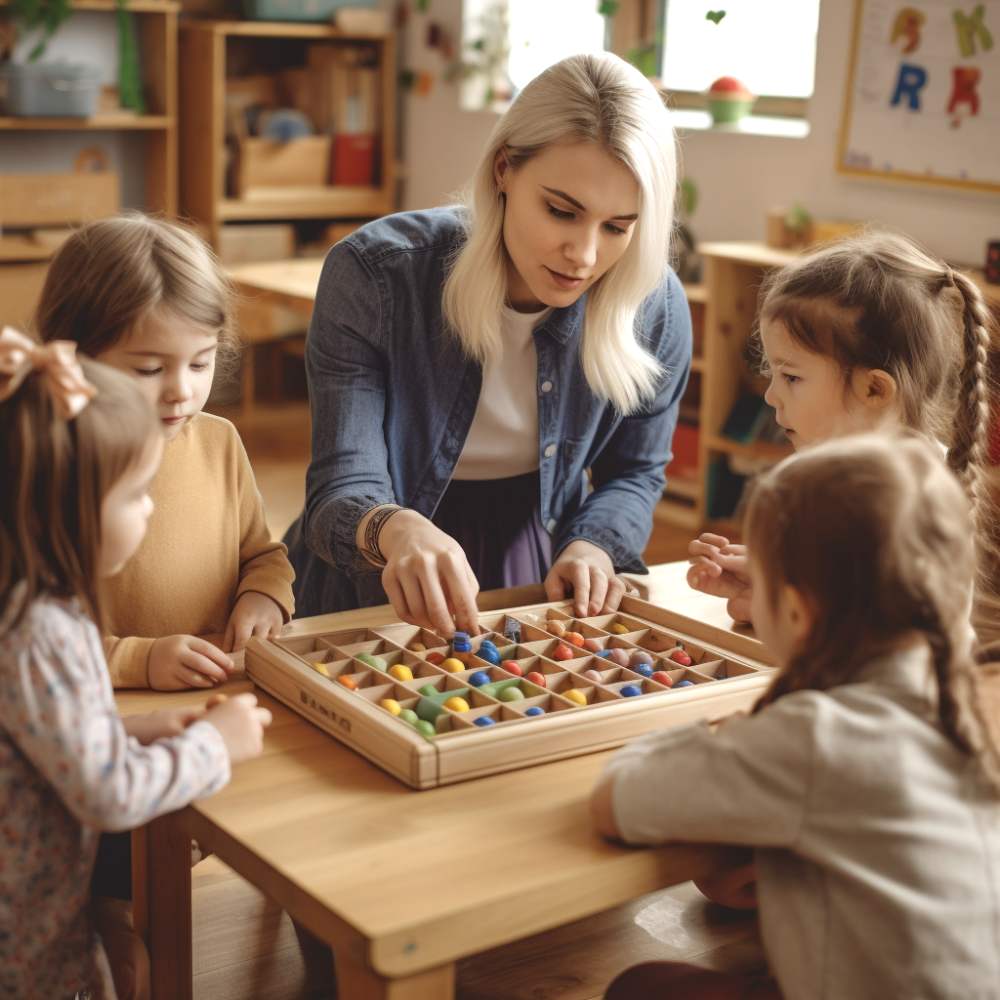
That's why, instead of putting you in a "Montessori or bust" headlock, I'm all about blending those beautiful principles of Montessori with your own dash of parental wisdom and the sweet chaos that is family life.
"Okay, okay, but what are these Montessori principles you speak of?" I hear you ask. Well, hold onto your proverbial horses (or real ones if you happen to be reading this on the back of a horse), because today, we're diving into the Fab Five of Montessori—no, not the Netflix show, the Five Core Principles that are the cornerstones of Montessori practices.
And get this, these aren't just for the classroom, they're for your living room forts and backyard mud pies, too!
If you're new to our little community here, and want to get the 101 on the Montessori philosophy before we jump in (or if you aren't new and want a refresher), get up to speed here with my guide to Montessori philosophy.
You see, these Five Principles—Respect for the Child, The Absorbent Mind, Sensitive Periods, The Prepared Environment, and Auto Education—are more than just fancy terms. They're the golden threads weaving through your child's development tapestry.
The best part? You don't need to follow them to the letter to see the magic happen. Remember, this is about taking what speaks to you, and filling in the gaps with your own amazing parenting skills. Because, let's be honest, who knows your kid better than you?
Here's what you can look forward to in today's article:
Key Takeaways
- Respect for Individuality: The Montessori method places a strong emphasis on respecting each child as a unique individual, fostering a sense of trust and autonomy.
- The Absorbent Mind: Children are seen as natural learners, absorbing information from their environment, making it crucial to provide enriching experiences.
- Sensitive Periods: These are specific windows of time when a child is especially receptive to learning certain skills, and parents should be attuned to these periods for effective teaching.
- Prepared Environment: Creating a well-organized and stimulating environment is key in Montessori education, as it serves as a playground for a child's curiosity and learning.
- Auto Education: This principle advocates for self-directed learning, empowering children to take control of their educational journey, thereby cultivating future leaders
If you've succumbed to the new gen short attention span, here is the 30 second version, which does not capture my charm at all!
Thanks for joining us on this journey. Grab your sippy cup—or wine glass, we don't judge—and let's jump in!
Principle One: Respect for the Child
Got your sippy cup or wine glass in hand? Good. Let's talk about Respect for the Child, a principle so pivotal that it makes all the others sing in harmony.
I've got to tell you, the more I've applied Montessori principles in my home, the more I've realized that respect for the child isn't just a Montessori thing—it's a humanity thing. Now, Maria Montessori might've coined the term, but here's the twist: respecting your child doesn't mean spoiling them rotten or letting them run the show like pint-sized dictators. It means acknowledging them as their own little humans with personalities as unique as fingerprints.
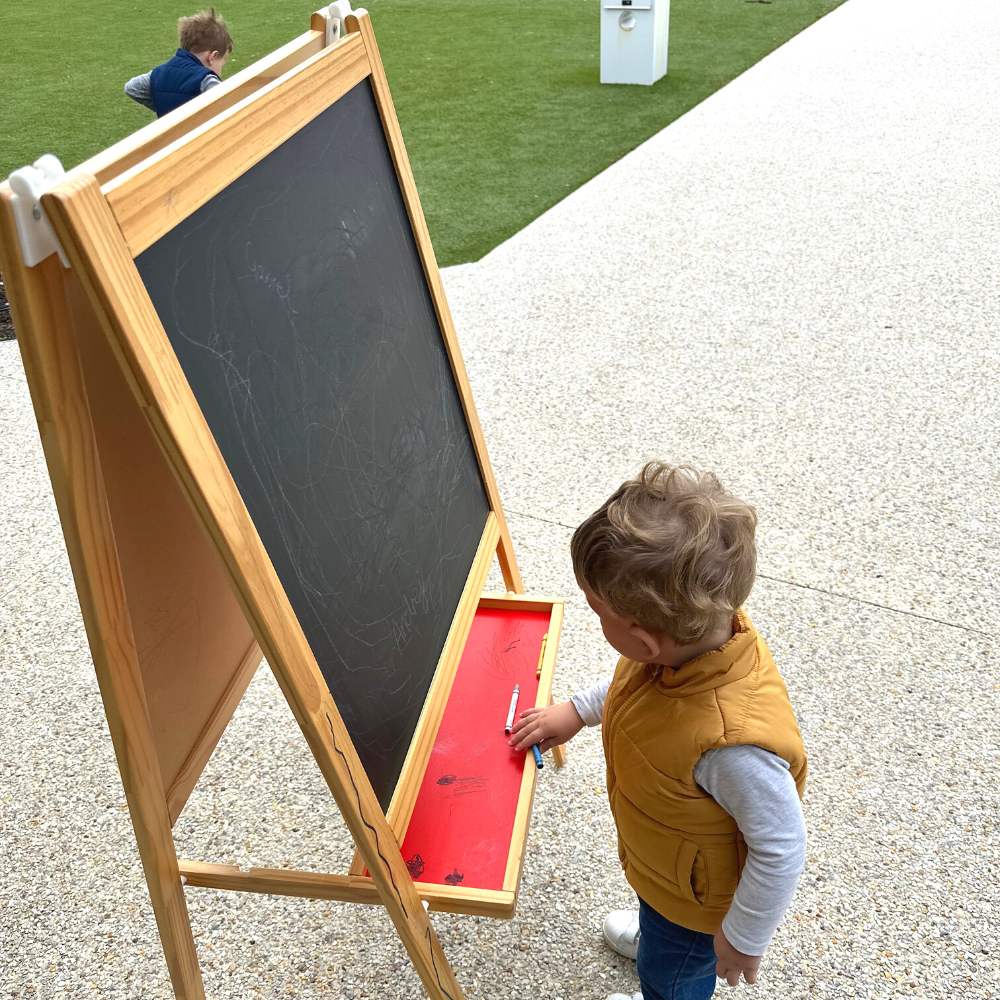
In Montessori schools, this principle takes center stage. Teachers spend time observing kids, just as you do at home, to understand not just what makes them tick but what makes their hearts sing. But let's get real.
At home, it’s not always a walk in the park. You're balancing your kid's learning with—oh, I don't know—making dinner, answering emails, and averting minor household disasters. So, how do you sprinkle that Montessori magic into this beautiful chaos?
First, allow kids to develop at their pace. Trust me, I’ve been there—the urge to helicopter-parent is strong, but nothing replaces the joy you'll see when your child ties their own shoes or pours milk without spilling. You empower them to make choices and, sure, occasionally mess up. That's not just education, folks; that's child development gold.
Secondly, recognizing and respecting your child's unique curiosities is like handing them a treasure map to a love of learning. You see, when children know their questions and interests are valued, they blossom, and that positively impacts the relationship not just between child and parent, but between child and teacher in a Montessori school environment as well.
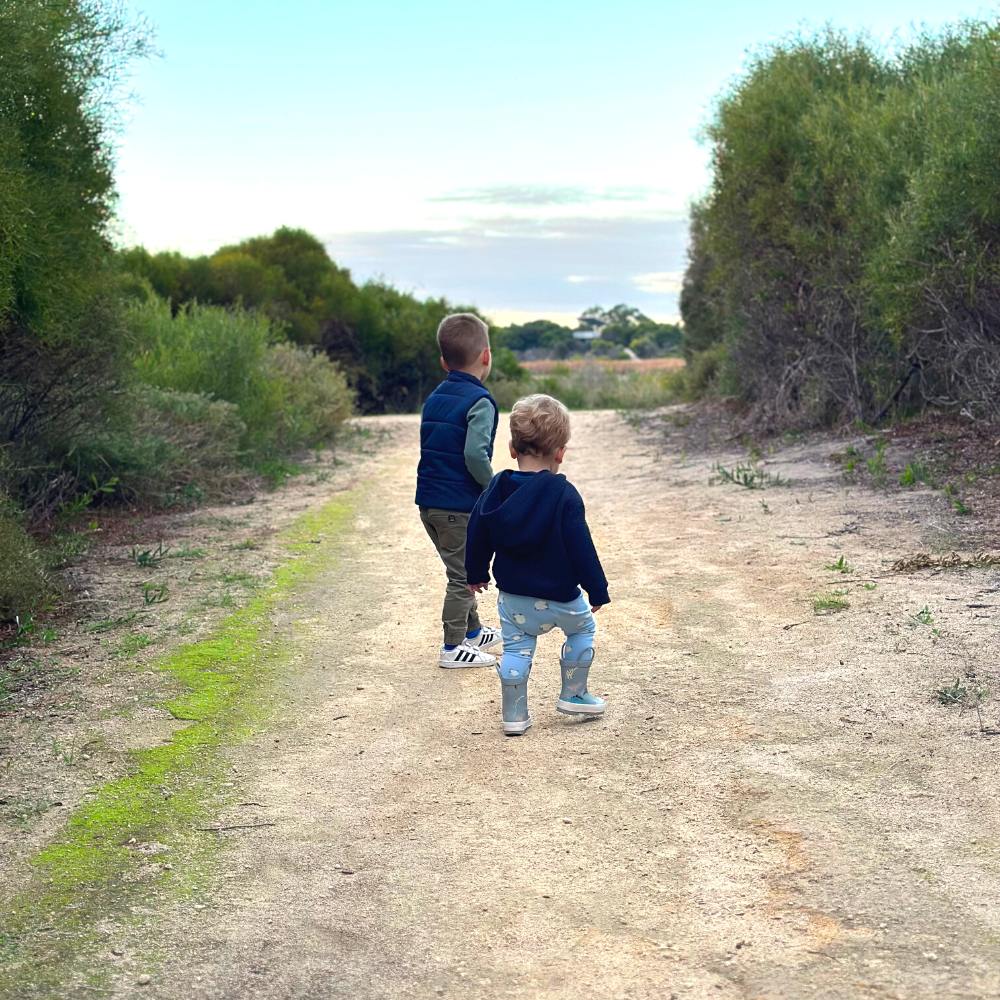
So here's the rub: Respect for the Child is not just the cornerstone of the Montessori method, it's the cornerstone of, dare I say, every thriving parent-child relationship.
It ties into the Absorbent Mind, the Sensitive Periods, and oh boy, that Prepared Environment we’ll get to later. But most importantly, it serves as the foundation of our mission here at The Montessori Compass, because let's face it, you're not just raising kids; you're shaping the future, one respectful interaction at a time..
Principle Two: The Absorbent Mind
Ah, the Absorbent Mind—Maria Montessori's brilliant observation that kids learn like little sponges, just soaking it all up. Honestly, wouldn't it be great if we adults could still learn like that? Imagine absorbing the ability to fold a fitted sheet as easily as your toddler learns to say "no." Ah, the dreams we dream.
So, after that glorious foundation of respect we've laid down—yes, the one where your kiddo feels like the valued member of society they are—we wade into the magical waters of the Absorbent Mind. This principle isn't just a core tenet of Montessori, it's the bedrock of how kids learn and develop in those crucial early years.
I remember how amazed I was at my sons' ability to learn a new word, just from overhearing it once! I mean, one moment we're identifying animals in a picture book, and the next he's asking for "hippopotamus" mac 'n' cheese. I didn't even know that was a thing (and as you can guess, we had to make it for him soon after...that's a story for another day)!
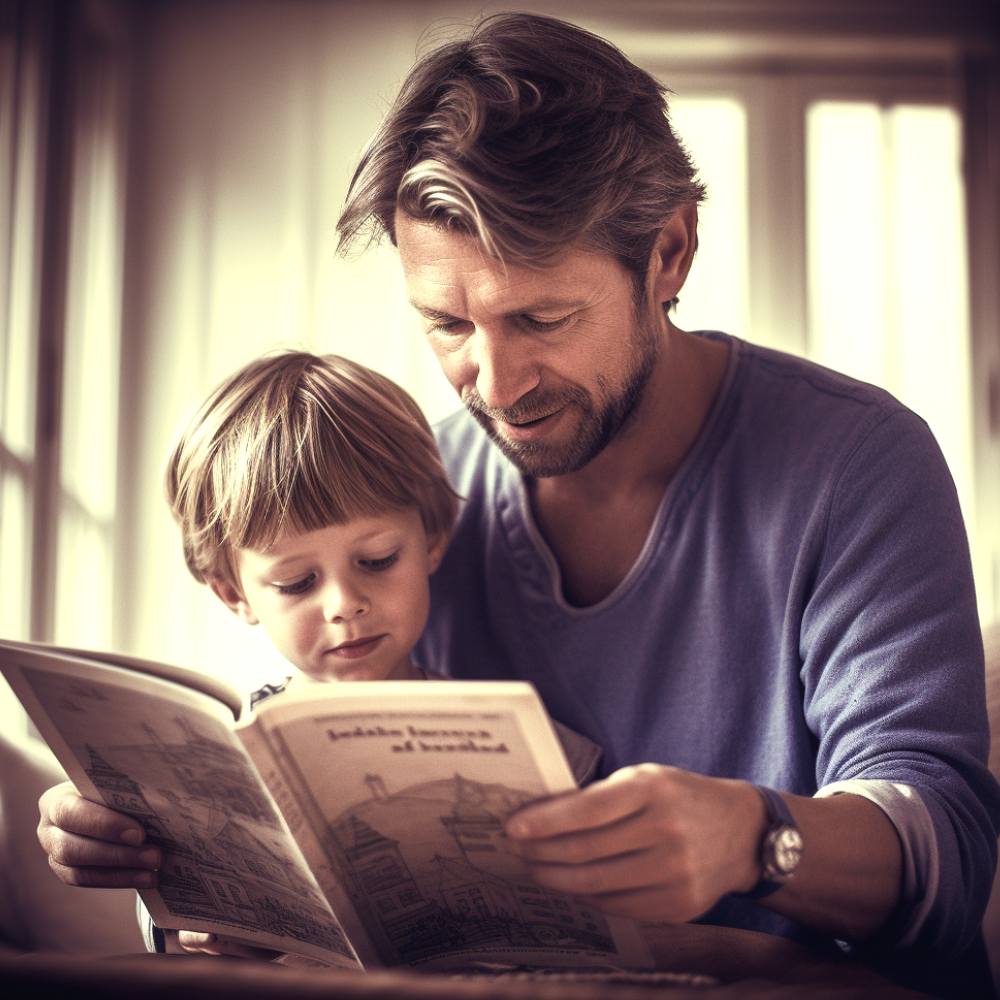
But this is what the Montessori principle is getting at—children develop in their own quirky, unpredictable ways. They have a natural talent for absorbing knowledge that aligns with their current interests, whether that’s the animal kingdom or the geometry of pasta shapes.
It's like this: kids are built to be learning superheroes. And when we, as Montessori-guided parents, recognize these unique powers, we can give them the kind of learning environment that feels like their personal Avengers headquarters. We're talking about tailored experiences that fuel their social and emotional development, while still making room for their individual zest for life.
Look, respecting the Absorbent Mind isn't about force-feeding knowledge. It's about setting a stage where your child's curiosity can dance freely.
Because when that happens, you're not just laying the groundwork for an excellent student; you're nourishing the spirit of a lifelong learner. And hey, that's the sort of well-rounded, self-assured individual we're all aiming to raise, right?

So, in short (too late for that, I know!), while the Absorbent Mind might sound like a complex cognitive concept, it's really the soul of Montessori, driving how children develop and learn. And as we all know, when you combine that with a dash of your own parental intuition, you've got yourself the makings of one unstoppable learning journey. Now, who's up for some hippopotamus mac 'n' cheese?
Principle Three: Sensitive Periods
Ah, the Sensitive Periods—those mystical windows of time when your child seems to pick up new skills like they're collecting Pokémon cards.
You know what I'm talking about.
One minute you're marveling at their newfound mastery of the ABC song, and the next, they're absorbed in a self-appointed mission to organize all the shoes in the house by color.
They're in a sensitive period, and it's like they've put on their little superhero capes, ready to conquer the world—or at least the shoe closet.
The Magic Window
So, we’ve delved into how a child’s Absorbent Mind works like a sponge. The next natural step is to dive into these Sensitive Periods. Why? Because if the Absorbent Mind is the sponge, then the Sensitive Periods are like those moments when the sponge is extra thirsty. These are the times when kids learn not just effectively, but almost effortlessly.
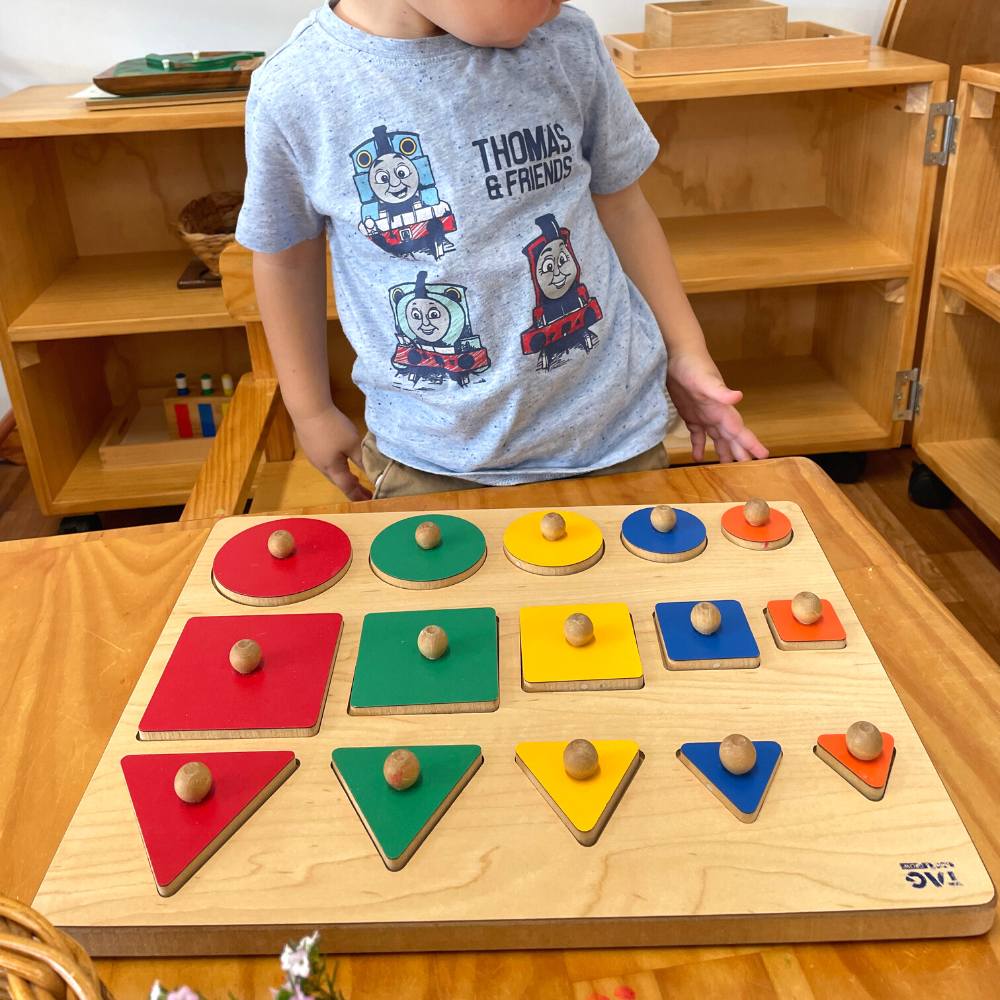
You see, Maria Montessori wasn't just giving us abstract concepts; she was handing us a map. When we identify these windows—be it for language, motor skills, or even social and emotional development—we have the opportunity to guide our little explorers to treasures they'll keep for a lifetime.
Seeing the Unseen
So how do we, Montessori-guided parents and educators, spot these periods? It's all about observing your child. When you see them repeat an activity obsessively, take note. That’s not just them being quirky; that's their brain saying, "Hey, this is important for me right now!"
- Pointing at every dog they see? Perhaps it’s a Sensitive Period for categorizing animals.
- Reciting numbers like they're reading poetry? You're in the Sensitive Period for math, baby!
- Playing and replaying social scenarios with dolls or action figures? Hello, social and emotional development window!
Your Role: The Sensitive Facilitator
For us, being aware of these periods isn't just an "Oh, that's cute" moment. It’s an "Aha, let’s nurture this" moment. Because when we catch these waves at the right time, we're not just educating children, we’re co-piloting on a joyous journey of discovery.
We’re empowering them to build skills that are not just academic but also vital life tools. Now that's what I call a winning strategy in child development!
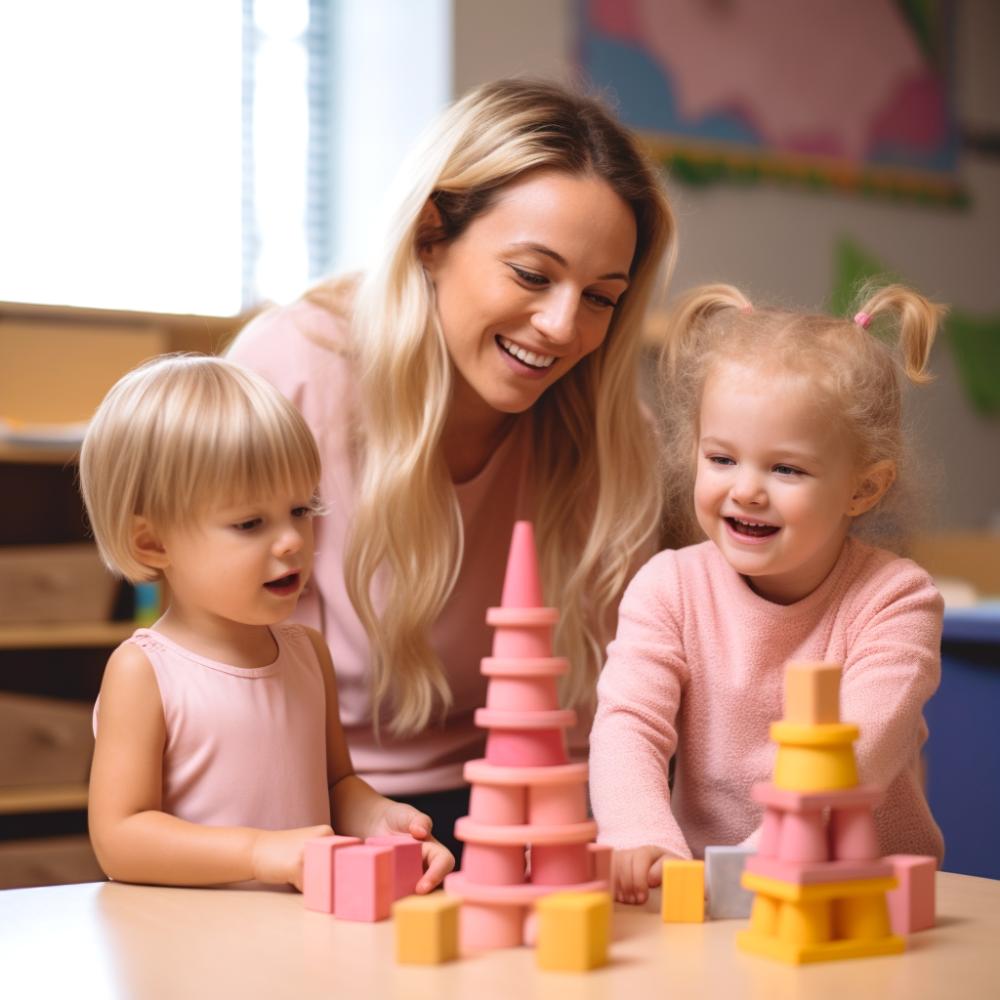
For those that have experienced Montessori classrooms, you would have noticed Montessori educators carefully observe students to identify sensitive periods in their learning process. By doing so, they can provide the necessary support and materials to help students maximize their learning potential.
In essence, these Sensitive Periods are like secret cheat codes to boosting a child’s growth and making learning a whirlwind of fun. Trust me, folks, you want to be in on this secret.
For a rundown of some of the more common sensitive periods, check out our guide on Montessori parenting.
Principle Four: The Prepared Environment
Picture this: you've cracked the code on when your child begins to go through those mind-boggling Sensitive Periods. You're sitting there thinking, "Okay, I've got this. What's next?" Well, the next superhero move is to assemble their Avengers Headquarters—aka, the Prepared Environment.
The Secret Sauce to Exploration
Let's call it what it is: The Prepared Environment is the secret sauce that makes all the magic happen. You've got this wondrous, insatiably curious child on your hands.
How do you fan those flames? You give them an environment where they can be the fearless explorers they were born to be.
This isn't just any space. This is a space where every toy, every learning material, every nook and cranny, is methodically planned to not just educate but inspire. Imagine a room where:
- Learning materials are within arm's reach, encouraging your child to choose their adventures.
- Different zones are mapped out for different skills—be it math, language, or social skills—creating a mental geography of education.
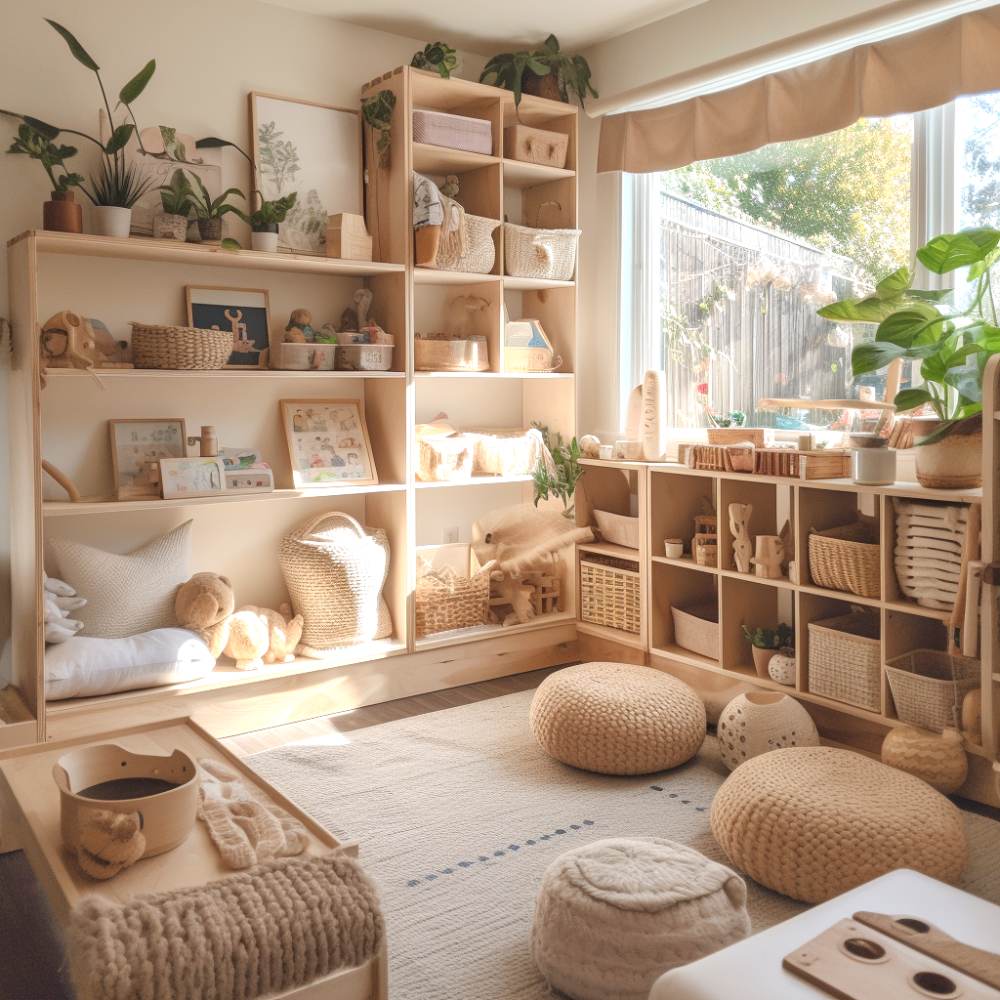
Practicality Meets Aesthetics
Ever walked into a room and felt instantly at ease? That's what a child feels when they step into a Montessori-prepared environment. I go beyond the functional and venture into the aesthetic.
Why?
Because the right colors, textures, and even lighting, my friends, speak to a child's soul. They tell the child, "You belong here. You're safe here. Let's learn some awesome stuff."
Strictly speaking, Montessori philosophy leans towards calming and neutral colors. But let's not get too doctrinaire here. If your child is going through a "Blue is the best color in the world!" phase, who am I, or anyone else, to argue? Sometimes, embracing your child's current obsession in moderation—so, no hot pink walls from ceiling to floor—adds a unique flavor of joy to the learning environment. And in my books, joy is a critical ingredient for effective learning.
A crucial aspect is spatial organization. In our home, we group materials and activities into distinct zones. This not only promotes order but also guides the natural flow of movement and work. This spatial genius contributes to a serene and productive atmosphere, essential for your child's concentration and focus
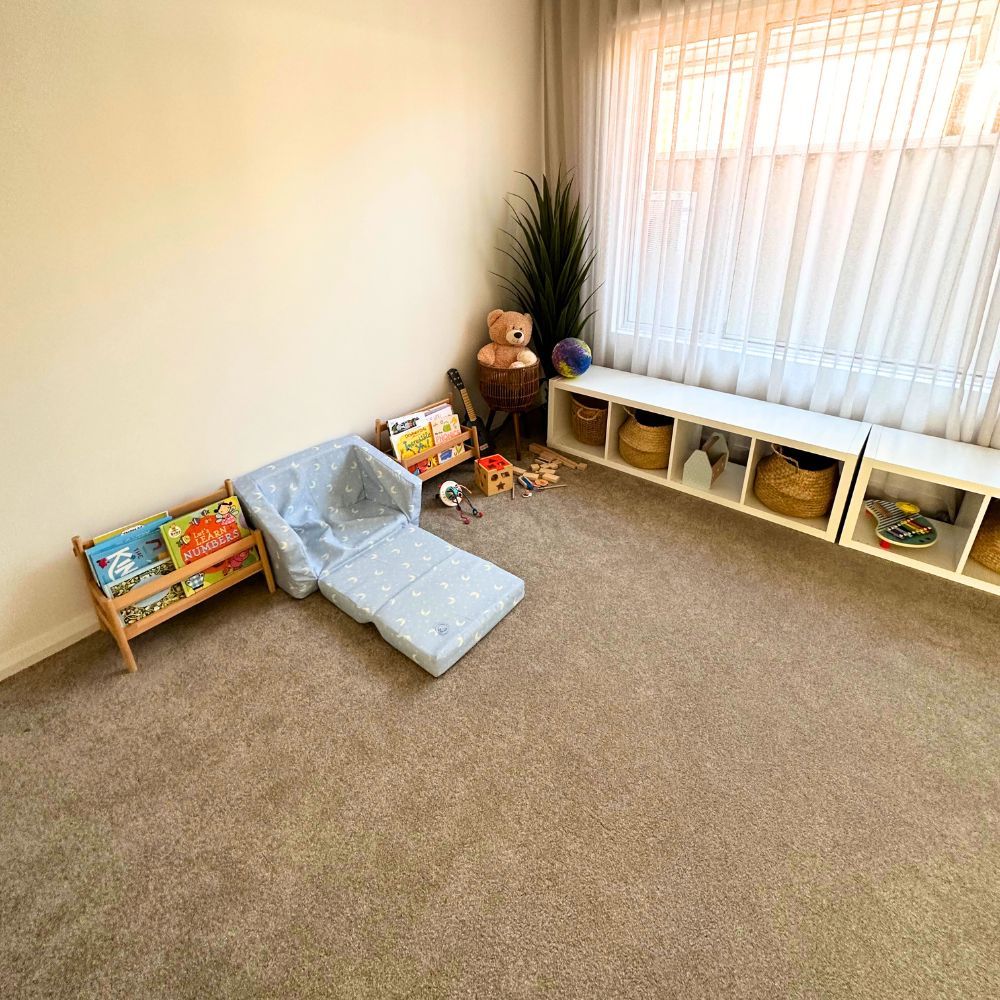
The Harmony of Independence and Guidance
But don't be mistaken, a prepared environment is not a free-for-all. I handpick materials, aiming for the Goldilocks zone of "just right" for your child's developmental stage. This is key, you see.
The prepared environment in Montessori philosophy is like an unspoken dialogue between the child and their world. It says, "Here are your options, what will you choose?" And believe me, when children are given the reins to their own discovery, that's when they truly begin to gallop.
Okay, but it's not all me and I have to give credit where credit's due. When it comes to aesthetics though, my wife is the genius with the eye for design. Me? I can identify the functional, educational bits, but she creates that je ne sais quoi that transforms a room into a haven. The lesson here is simple: Don't be a lone wolf. Whether it's your spouse, a friend, or even a community group, reach out. You're not in this alone.
To sum it up, creating a Prepared Environment is like setting the stage for a lifetime Oscar-winning performance. Every detail matters. Every choice is intentional.
This is where educating children transitions from mere instruction to an art form. So, if you want your child to star in their own life with flair and gusto, know that the Prepared Environment is your behind-the-scenes superstar.
For an in depth guide on how to get started, check out this guide on building the perfect Montessori home for you.
Principle Five: Auto Education (or Self Education)
You've got the stage set, the environment prepared, and your child is bursting with enthusiasm. You're probably thinking, "Alright, what's the director's cut?"
Hold onto your seats, because here comes the plot twist: Auto Education, or in layman's terms, Self Education. This principle flips the script on traditional education and shouts, "The kid's got this!"
The Heartbeat of Autonomy
Auto Education is the epitome of the child centered approach. Imagine, for a moment, you were handed the steering wheel of your own education as a child. No backseat drivers.
How empowering would that feel? This is precisely what Auto Education aims to provide for every child. By placing the compass of learning firmly in their hands, we're saying, "I trust you to discover your North Star."
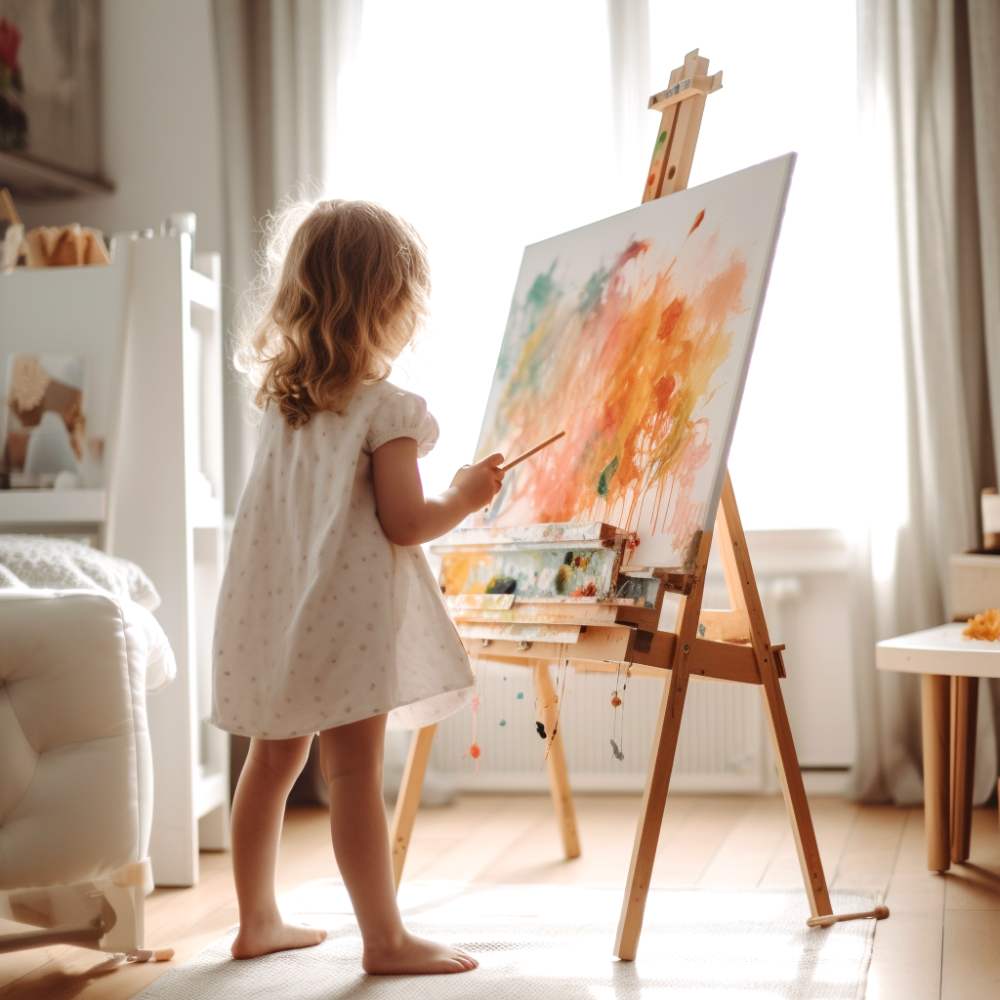
Practical Life Meets Purposeful Learning
Now, I can already hear some folks mutter, "How do you let a child lead? Isn't that like the blind leading the blind?" Nope, not with the Montessori philosophy. Remember that 'Prepared Environment' we meticulously crafted? Here's where the magic happens.
- Age-appropriate learning materials? Check.
- Easily accessible resources? Double check.
- A myriad of avenues for discovery? Triple check.
Your child doesn't just wander aimlessly. They dance through a landscape you've created that nurtures their innate curiosity and is meticulously designed to develop independence and practical life skills.
Be the Guide, Not the Gatekeeper
Let me tell you this: as someone deeply invested in the Montessori method for our little minions, the idea of relinquishing some control can feel counterintuitive. But trust me, letting the child develop their roadmap is like adding the yeast to the bread—it makes the learning rise.
This doesn't mean we're throwing them into the deep end without a life jacket, we're their lifeguards, watching attentively and stepping in only when necessary (this can be difficult, but with practice, you can get there).
Investing in Future CEOs of Their Lives
By promoting Auto Education, we're not just shaping kids; we're grooming future adults. Imagine a generation of leaders who know how to think, not what to think, who approach challenges with a can-do spirit, fortified by years of trust and autonomy, and not follow a defined rule set!
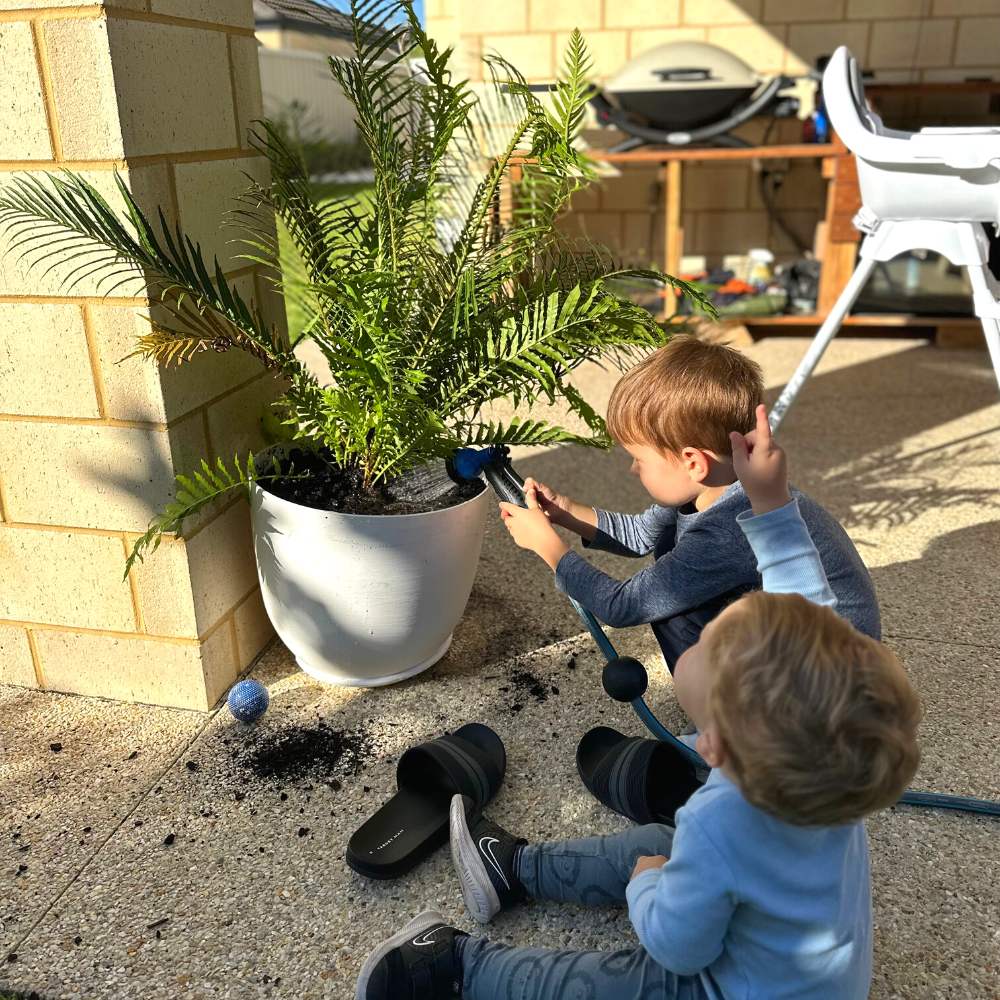
This, my friends, is where we glimpse the potent power of Montessori—equipping our children to navigate life as competent, curious, and balanced individuals.
In short, Auto Education doesn't just grow learners, it cultivates leaders.
This is Montessori in its most audacious form, daring to declare that a child, given the right tools and the freedom to use them, can build a skyscraper of their capabilities.
And let's be real, who wouldn't want their kid to be the architect of their destiny?
Frequently Asked Questions
At this point you may have some questions (or a lot!). Let's dive into a few!
How do Montessori Principles differ from traditional educational methods?
Great question! The Montessori Principles (and Montessori teachers) focus heavily on individuality and self-directed learning. Unlike traditional systems that follow a one-size-fits-all model, Montessori respects each child's unique pace and learning style. From the absorbent mind to sensitive periods, the goal is to tap into your child's innate curiosity and guide them in their journey of self-discovery.
Can Montessori Principles be applied at home, or is it only for Montessori schools?
Absolutely, you can implement Montessori Principles right in the comfort of your home! The beauty of these principles, such as creating a prepared environment and respecting sensitive periods, is that they are highly adaptable. They can transform not just classrooms but also home spaces into hubs of learning and growth where your children learn according to a unique foundation at their own pace that YOU build. You don't have to be a certified Montessori teacher to encourage your child's natural tendencies toward self-education and exploration.
My child has special needs; can Montessori Principles still be beneficial?
Yes, they certainly can! One of the most appealing aspects of the Montessori Principles is their focus on individualized, child-centered education. Whether it's adjusting the learning materials in the prepared environment or tuning into your child's sensitive periods, the Montessori method is all about meeting each child where they are.
You can find more questions and answers here at the American Montessori Society.
My Closing Thoughts
We've had quite a journey today, haven't we? Here's the lowdown in a nutshell, just to make sure we're all on the same cozy, knowledge-packed page:
- Respect for the Child: This is where the Montessori journey begins. Recognize your child as a unique individual and let trust be the cornerstone. Your role? You're more of a Gandalf, a wise guide, not the dictator of Middle-earth (sorry for the LotR jokes, I can't help myself)!
- The Absorbent Mind: Kids are sponges, soaking up the world around them. Feed that absorbent mind with experiences and environments that are as nourishing as mom's home-cooked meals. Be the chef of their cognitive banquet.
- Sensitive Periods: Think of these as your child's 'peak seasons' for picking up certain skills. Be the attentive farmer, knowing when to sow and when to reap.
- The Prepared Environment: It's not just a room; it's a universe of possibilities. Create a space that screams, "Hey kiddo, explore me!"
- Auto Education: Handing your kid the steering wheel of their own education. A bit scary, sure, but oh-so liberating.
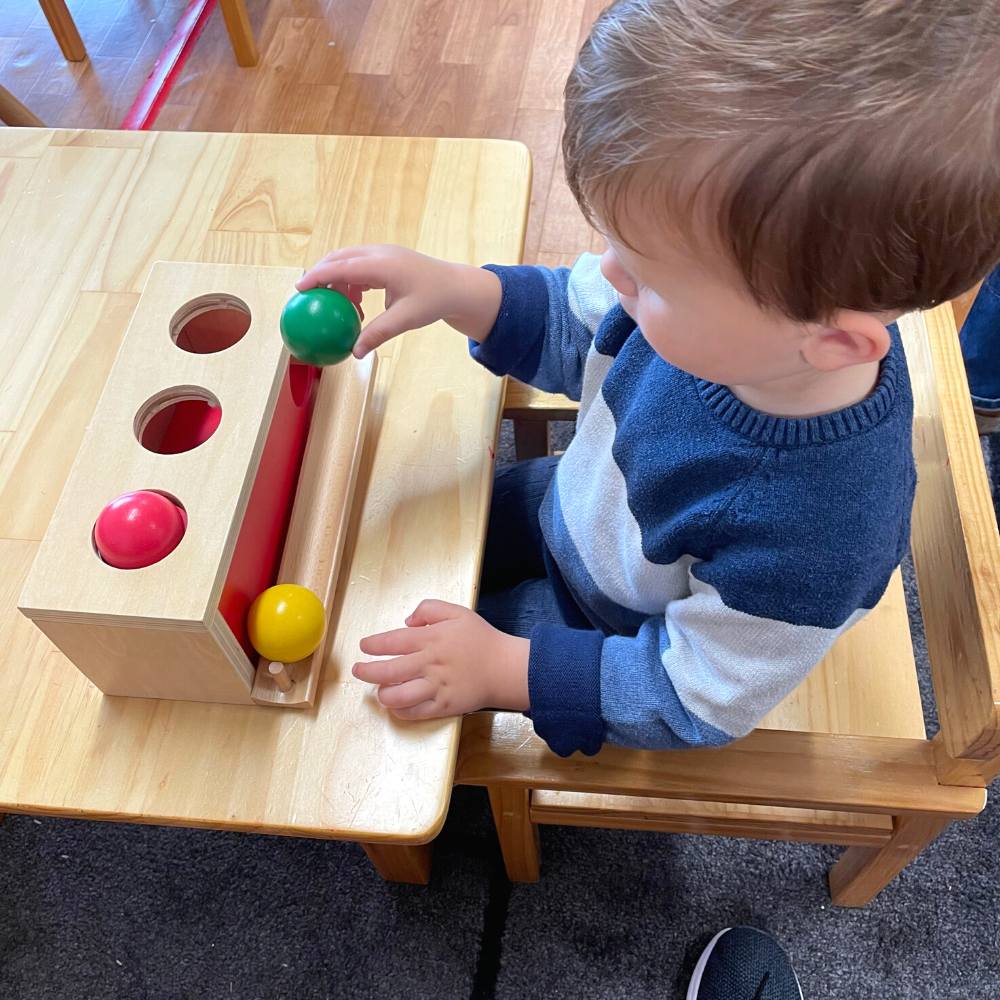
If you've felt a connection with what you've read, then I believe we're aligned in this incredible mission—creating an oasis of exploration, growth, and boundless love for learning. Whether you're an educator, a parent, or a beautiful mix of both, remember, we're on this road together.
Because, let me just say, whether you're new to the Montessori way or a seasoned pro, you're an integral part of this incredible community we're building. Yes, YOU! Each one of you adds unique colors to this learning tapestry.
And hey, if you've got a question that's gnawing at you, or you're staring at your child's playroom wondering where on earth to start, hit me up at admin@themontessoricompass.com. I'm all ears and an open heart. The American Montessori Society is another great resource for those interested in learning more about Montessori education and how to incorporate its principles into their teaching practice or home life.

So before you dash off, could you do me a tiny favor? If you found a nugget of wisdom or a sprinkle of inspiration here, share this article. Let's get everyone navigating by this Montessori compass.
In closing, a massive thank you for sharing your time and energy with me. Your presence enriches this community, and I'm thrilled to have you aboard. Let's keep this ship sailing toward uncharted yet extraordinary territories.
Journey on, my friends, and remember—you've got this!


